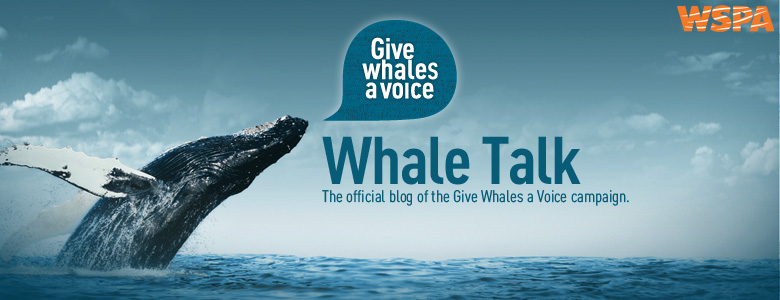The IWC meeting opened with a traditional Moroccan music performance. Then it was called to order at exactly 10.35am with a thank you to the King of Morocco and a welcome to all the government ministers, ambassadors, commissioners, delegates, observers and media - with an acknowledgement that we're all here to work towards achieving some kind of agreement.
The Moroccan Secretary General of the Ministry of Marine Fisheries spoke, saying Agadir is honoured to be chosen as host of this year’s IWC. Morocco is bordered by two seas – the Atlantic and the Mediterranean – and these are used for trade, transportation and tourism. Therefore Morocco has always been interested in the protection of the marine environment and its resources. And they follow with great interest the issue of whaling and acknowledge the importance of working towards a responsible consensus.
That all sounds wonderful – but where do you stand on the issue of whaling? Do you acknowledge that it is an inherently cruel process?
Then, after a total of 15 minutes, the Chair announced they would be breaking for coffee! What ??? We’ve only been here 15 minutes. Let’s get some action happening. Let’s start talking about the issues that really matter.
At 11.28am we’re welcomed back. With opening statements invited from the three new attending governments, Ghana, Dominican Republic and Bulgaria … but only one of the three were in attendance. Ghana said a quick hi, and expressed confidence they’ll reach a situation where their country is well represented. And the other two countries didn’t even bother to turn up.
Japan was the next country to speak – basically just to say they don’t have any objection to the agenda. And took the opportunity to offer their cooperating spirit and to say they will make the most effort to solve this issue.
Next comes the big announcement! In order to complete the agenda, the plenary sessions will be suspended until Wednesday morning. They acknowledge that it’s an unusual approach, but believe it will be the most effective and convenient approach, for such a complex and sensitive issue.
So that’s it. We’ve effectively been kicked out! The plenary sessions have been suspended to allow for private discussions for member governments. They assure us that a press release will be provided tomorrow morning, to keep us informed of the discussions.
The Chair reckons the decision to hold closed meetings strongly signifies their desire to work towards a consensus. WSPA does’t see it that way. It goes without saying that all WSPA representatives are extremely disappointed and appalled by the IWC’s lack of transparency during the negotiation process. This could see 88 governments agree to the inhumane slaughter of innocent whales over the next 10 years.
The NGOs here are trying to represent the view of people worldwide opposed to commercial whaling. It’s outrageous that the fate of the world’s whales depends on decisions made behind closed doors, while the media and welfare groups are completely shut out.
Where do we go from here? We sit and wait. And hope for any snippets of information that filter through from government representatives attending the meetings. We will not give up.
Sami Lukis
You can help to Give Whales A Voice today! Together anything is possible.








